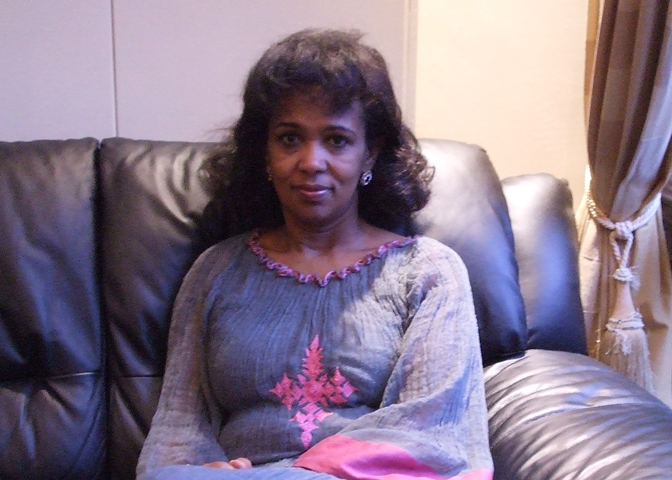Saba Gebremedhin Hagos
(Ethiopia)
MA in Gender, Globalisation and Rights, NUI Galway
Saba was Director of the Network of Ethiopian Women's Organisations when she applied for an Irish Aid Fellowship in 2012. She received a scholarship to study for a Masters at the National University of Ireland, Galway for the 2013-14 academic year, taking a study break from her role to do so.

Being put into another context, away from my country, my project and into discussion and debates, has been so helpful to step back and look at everything. I see what we are doing at home is a very good thing but the course has given me a new direction in terms of issues and how we should advocate for them and address them.
I am director of the Network of Ethiopian Women's Organisations, an NGO working on women’s rights. It is an umbrella organisation which has different member organisations who are implementing those programmes on economic, political and social rights. We work on capacity building and advocacy at a national level, especially with regard to violence against women. We also work on networking with regional organisations in Africa, and within local civil society and government. We also monitor government compliance with its commitments at international level, like the Convention on the Elimination of all Forms of Discrimination against Women (CEDAW). As director I lead the organisation, especially in terms of campaign and co-ordinating work and in organising meetings and activities.
I chose the MA in Gender, Globalisation and Rights because I wanted to work on women and gender as a whole, because that’s my career, but also the globalisation perspective is a good thing because it brings you to the present situation. I am very happy now that I selected it. I’ve benefitted a lot. I’m a lawyer by profession and I had some background on the rights dimension but after some years now it has helped me to see the issues in terms of womens’ rights and human rights – it has opened my mind and my eyes as to how to analyse those issues. In the class, most of the women are younger and I have found it very interesting to see their perspective – the differences, of course, but also their passion and their intelligence is very good. It has been a very active, engaged group and has been a very good experience. We have found a lot in common in a very international group. Being put into another context, away from my country, my project and into discussion and debates, has been so helpful to step back and look at everything. I see what we are doing at home is a very good thing but the course has given me a new direction in terms of issues and how we should advocate for them and address them.
It was difficult leaving my family. That was a big decision. Some days I wake up and get shocked and think ‘What did I do?’ I miss my family, my children, my husband. But there is no other way you can have a chance to step back and reflect in this way and I appreciate it. I have met people from many other countries and have learnt much from talking to them. I love Galway, it’s small and you have a sense of belonging. The separation is very hard but the experience in Ireland has been very good.
What I have learnt here has strengthened my sense that what my organisation is doing is correct but also that they need deeper analysis and a more global perspective. As I sit here I see the importance of certain issues that the women’s movement in my country needs to grasp. I’m learning and I’m thinking about what can be done. There are specific issues like trafficking and migration that I have really become interested in.
I believe I will have a better picture when I finish the course and will take a lot back to share. We used to have Gender Talk forums with speakers on different issues but these were discontinued for financial reasons. One of the things I’ve concluded is we need to have that back, talking about the pertinent issues, linking the local to the global. We need to talk on a higher level. It’s on my ‘to do’ list to open that dialogue.
For the future, I hope to be able to do more and exercise what I have learnt here. You never know what the next path will be, but I will go back to my organisation and use my capacity. What we learn is for some objective, it’s not just for knowledge. I believe I will be a better, more informed advocate.
I see that here in Ireland there are problems and issues for women, being developed doesn’t mean you’ve gone beyond that. In Ethiopia we require more change but it doesn’t mean we have to wait many years because we can learn from the Western countries so that it doesn’t take us so long.